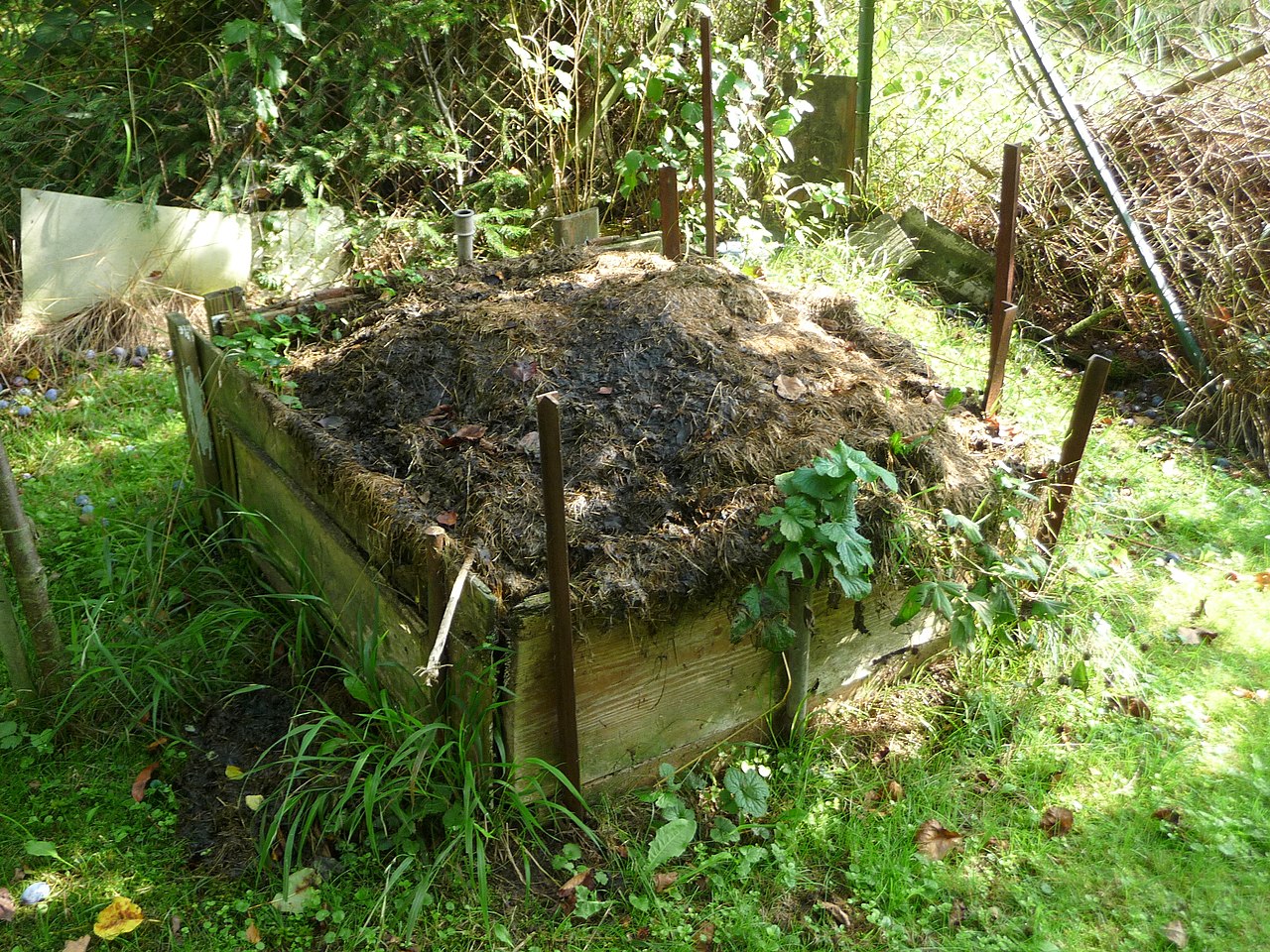For best results, placing your bin in the partial sun is recommended, so spend some time in your yard at different times of day and make sure you choose well. Compost piles should receive at least 4 to 6 hours of sunlight daily.
Traditionally, compost bins are located in a spare corner of the garden and should be easily accessible, but it should not be placed in an area where occasional smells or leaching liquids may cause you or your family discomfort.
Table of Contents
Does Compost Need Sun or Shade?
The best way to avoid constantly watering your compost heap is to find a location in your backyard that receives some shade. It’s easy to make compost in a hot corner of your garden that gets direct sunlight, but if it’s too hot, it’ll dry out.
For composting to be successful, there must be a balance between moisture and air. Avoid areas that receive a great deal of sunlight.
The composting process is more effective when the pile has the right moisture level, so avoid any spots that could result in overheating.
Does Compost Need Full Sun?
If you let your compost pile be in the sun for too long, it will dry out.
Food waste, peels, coffee grounds, tea bags, eggshells, food scraps, kitchen scraps, kitchen waste, grass clippings, organic matter, and brown material are supposed to decompose in your pile, and it will if the conditions are right.
The full sun increases the temperature, which helps bacteria and fungi work more quickly and speed up the decomposition process. It also means that your pile will dry out more quickly, especially if you live in a warm climate.
So, despite full sun being good in some ways, it is not ideal. The best location for your bin will be in a spot with partial shade.
How Much Sun Does a Compost Bin Need?
Your bin requires a few hours of sunlight per day (at least 4 hours).
Your composting materials will decompose best if your bin can maintain a temperature of 150 degrees Fahrenheit.
How Much Sun Does a Compost Pile Need?
Compost piles should receive at least 4 to 6 hours of sunlight daily.
This number will vary depending on your location, but compost generally requires at least a few hours of full sunlight daily.
Compost piles should be kept at a temperature of 150 degrees Fahrenheit. As a result of high temperatures, decomposition is accelerated, and harmful pathogens are killed.
Compost below 130°F becomes a breeding ground for parasites, flies, ants, and other pests. It is also possible for many weeds to survive in these conditions. In the meantime, temperatures over 160°F or so may harm the beneficial fungi and bacteria responsible for composting.
You can compost at a cooler temperature. Cold composting involves temperatures below 90 degrees Fahrenheit. Composting at cold temperatures produces usable fertilizer within 6 months.
In some cases, cold compost piles are more likely to attract pests and release foul odors than hot compost piles.
What about a compost tumbler?
Tumblers are fully sealed containers that can be rotated to mix composting materials. A sealed container also helps contain the heat generated during composting, which speeds up the composting process.
Since composting microbes requires sun heat to function effectively, putting your tumblers in the shade will slow the composting process.
Can you compost in the shade?
Depending on how quickly you need the compost to be ready, you may want to keep the compost bin in the sun or the shade.
It is best to have compost in the sun if you need it sooner since the added heat will assist it in breaking down and drying out more quickly. The shade is fine if you will not need it immediately.
Compost bins can be used in the shade. Even though it may not be ready as quickly due to lower temperatures, keeping it in the shade also prevents it from drying out too quickly.
In addition, if the shaded area is situated under deciduous trees, while it might be a little difficult to have a compost bin there (see below), by the time the leaves fall, the temperature will also be cooler, so you will be able to enjoy direct sunlight without having to worry about it drying out too quickly.
It is important to rotate the compost pile if you have chosen an area that is consistently shaded year-round, such as under pine trees or next to a building so that each part of the pile has an opportunity to be at its warmest center.

